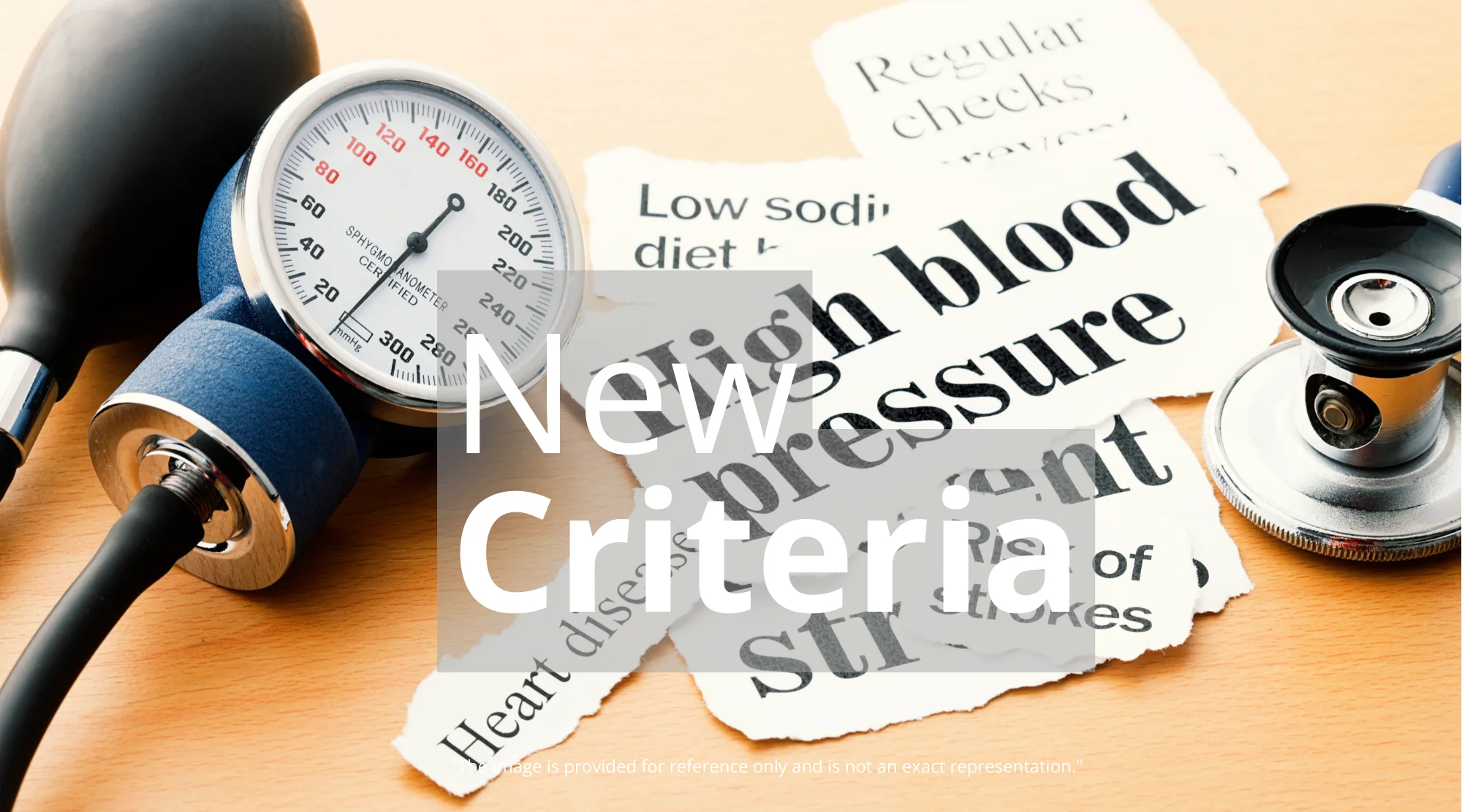New Guidelines for High Blood Pressure: What You Need to Know for a Healthy Heart
High blood pressure, or hypertension, is a widespread health concern, affecting nearly half of all adults in the United States. It’s the leading risk factor for heart disease and stroke, potentially leading to devastating health consequences like dementia and cognitive decline. But the good news is that effective management is possible. Recent guidelines from the American Heart Association and the American College of Cardiology offer updated strategies for prevention and treatment. This article dives into the latest recommendations, providing you with the information you need to take control of your cardiovascular health.

Redefining High Blood Pressure: What’s Changed?
The 2024 guidelines have introduced significant revisions to the definition of hypertension. These changes reflect the medical community’s evolving understanding of this condition. Notably, the threshold for what constitutes high blood pressure has been lowered. The category of “prehypertension” has been eliminated. Now, blood pressure readings are categorized as follows:
- Elevated Blood Pressure: Systolic between 120-129 and diastolic less than 80 mm Hg.
- Stage 1 Hypertension: Systolic between 130-139 or diastolic between 80-89 mm Hg.
- Stage 2 Hypertension: Systolic at 140 or higher or diastolic at 90 mm Hg or higher.
These stricter criteria mean that more people may now be diagnosed with high blood pressure. If you’re concerned about your numbers, it’s time to consult your doctor.
Lifestyle Modifications: Your First Line of Defense
Lifestyle plays a crucial role in managing and preventing high blood pressure. The latest guidelines place a strong emphasis on several key areas:
- Diet: The DASH diet (Dietary Approaches to Stop Hypertension) is strongly recommended. This eating plan emphasizes fruits, vegetables, low-fat dairy, and whole grains. A DASH diet can reduce blood pressure by approximately 10 mm Hg. You can find recipes and other information in our article, “Revolutionize Your Health: A Delicious 30-Day Mediterranean Meal Plan”: https://befullbehealth.com/2025/revolutionize-your-health-a-delicious-30-day-mediterranean-meal-plan/
- Sodium Reduction: Aim for less than 2,300 milligrams of sodium per day, ideally less than 1,500 milligrams.
- Alcohol Intake: Limit alcohol consumption. The guidelines recommend a maximum of two drinks per day for men and one drink per day for women.
- Physical Activity: Regular exercise is crucial. The guidelines suggest at least 150 minutes of moderate-intensity aerobic exercise per week. Read more on the benefits of exercise in “Exercise Benefits: Supercharge Your Health & Well-being (The Ultimate Guide)”: https://befullbehealth.com/2025/exercise-benefits-supercharge-your-health-well-being-the-ultimate-guide/
The Role of the PREVENT Risk Calculator
A significant advancement in the new guidelines is the use of the PREVENT risk calculator. This tool assesses an individual’s overall cardiovascular risk by considering factors such as demographics, cholesterol levels, medical history, and blood pressure. The PREVENT calculator is available online and provides valuable insights for both patients and healthcare providers, allowing for a more personalized approach to care.
Monitoring and Managing Your Blood Pressure
The guidelines encourage patients to monitor their blood pressure at home to understand how it fluctuates throughout the day. Your doctor can advise you on the best methods for doing this. The new guidelines also emphasize the importance of treating high blood pressure aggressively. This proactive approach can significantly reduce the risk of future health complications.
The Link Between Lifestyle and Blood Pressure
It’s essential to understand that various lifestyle factors can impact your blood pressure, often synergistically. Beyond diet and exercise, consider the following:
- Weight Management: Maintaining a healthy weight is vital.
- Stress Reduction: Chronic stress can elevate blood pressure. Explore relaxation techniques and mindfulness practices. Consider our article, “Cortisol and Brain Health: How Chronic Stress Impacts Cognitive Function”: https://befullbehealth.com/2025/cortisol-and-brain-health-how-chronic-stress-impacts-cognitive-function/
- Sleep Quality: Aim for 7-9 hours of quality sleep each night. For more on this topic, check out “Chronic Insomnia and Brain Health: How Poor Sleep Speeds Up Aging”: https://befullbehealth.com/2025/chronic-insomnia-and-brain-health-how-poor-sleep-speeds-up-aging/
Conclusion: Taking Charge of Your Heart Health
The updated guidelines for managing high blood pressure offer a comprehensive roadmap for protecting your cardiovascular health. By understanding the changes, adopting healthy lifestyle habits, and working closely with your healthcare provider, you can proactively manage your blood pressure and reduce your risk of heart disease, stroke, and other serious health conditions. Make informed decisions to live a longer, healthier life.














Post Comment